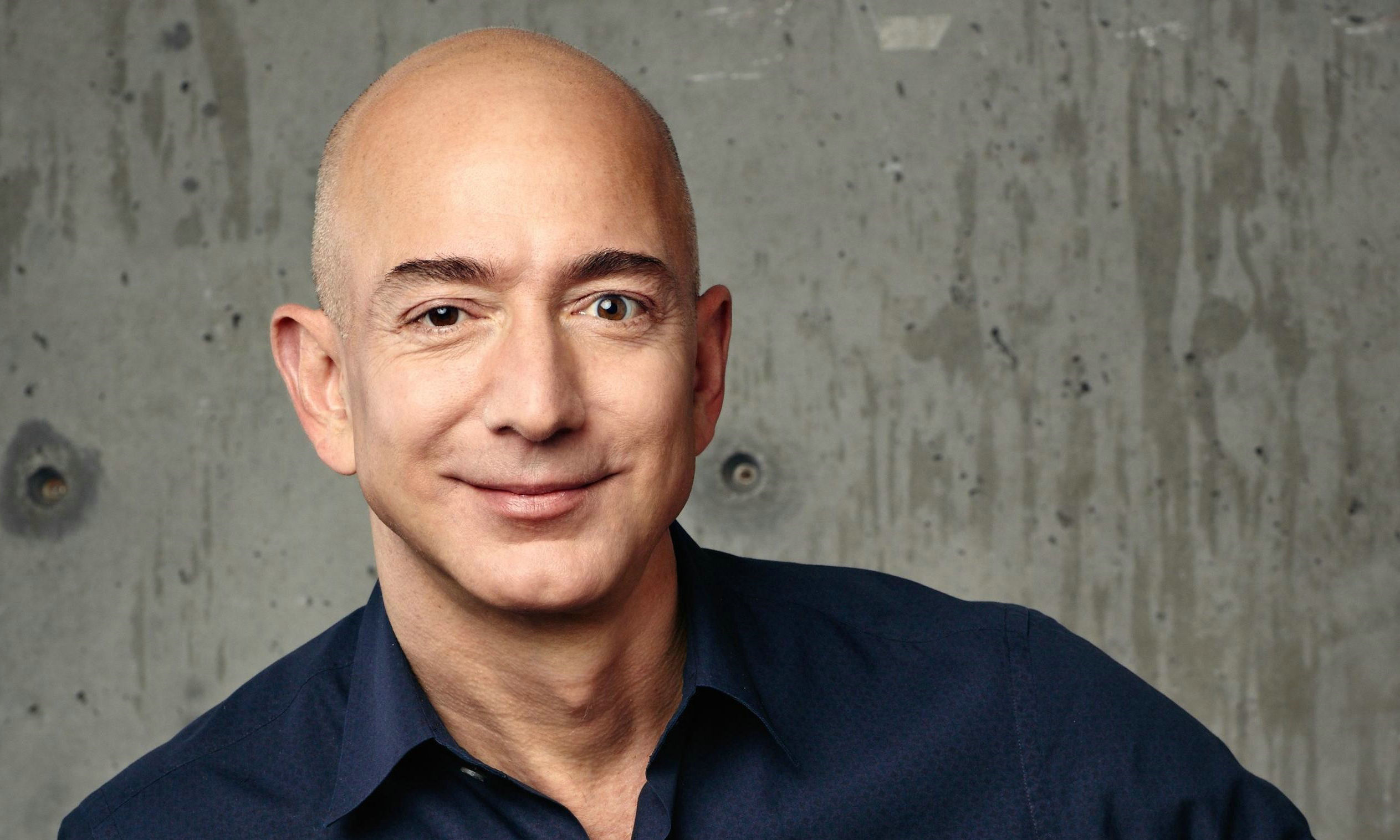In the vast cosmos of the tech industry, there shines a brilliant star who, with his groundbreaking innovative mindset, transformed a humble desk in a college dormitory into a global technology kingdom. This luminary is none other than Michael Dell, founder of Dell Technologies, an entrepreneurial titan who ingrained the ethos of "customer centricity" into the heart of his business.
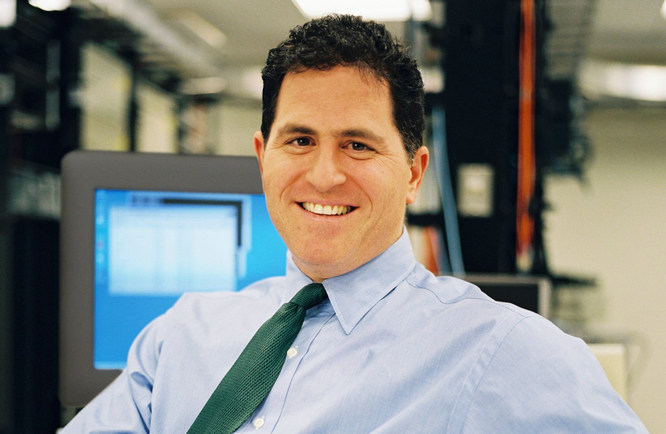
Rising to Prominence: A Disruptive, Zero-to-One Startup Saga
Michael Dell's entrepreneurial spark was ignited by his profound insight into the personal computer market. An arena dominated by giants like IBM, where computers came at premium prices and customization was a rarity, Dell discerned an opportunity. By procuring components directly from manufacturers and assembling PCs himself, he envisioned not only reducing costs but also catering to individual customer needs. This simple idea germinated in his mind, swiftly taking root and blossoming.
While college dorms typically echoed with the sounds of study, rest, and occasional revelry, Dell's became a microcosm of manufacturing. Amidst the late-night silence when his roommates slept, his room buzzed with the symphony of keystrokes and the whir of screwdrivers, as he meticulously assembled computers. By day, he traversed the campus, personally selling his creations to fellow students. This direct, unorthodox sales approach disrupted traditional models, heralding the advent of "direct sales."
Initially, Dell aimed to sell merely ten computers per week. However, his model's directness and efficiency swiftly attracted a growing clientele, leading to exponential business growth. Within a year, sales skyrocketed to an astonishing $6 million, validating his business model and earning him invaluable market trust. Dell famously stated, "Direct contact with customers and understanding their needs is the key to success." This simple mantra encapsulated his entrepreneurial philosophy.
Navigating Turbulence: The Unwavering Journey.Yet, the path to success was not without obstacles. Faced with funding shortages, supply chain complexities, and fierce competition, Dell exhibited maturity beyond his years, calmly refining operations and introducing innovative supply chain management techniques to ensure prompt, accurate fulfillment of every order. Simultaneously, he invested in R&D, aligning products with future market demands. These efforts propelled Dell Computers from a dorm-room project to a registered company—Dell Computer Corporation—marking a pivotal milestone in his journey.
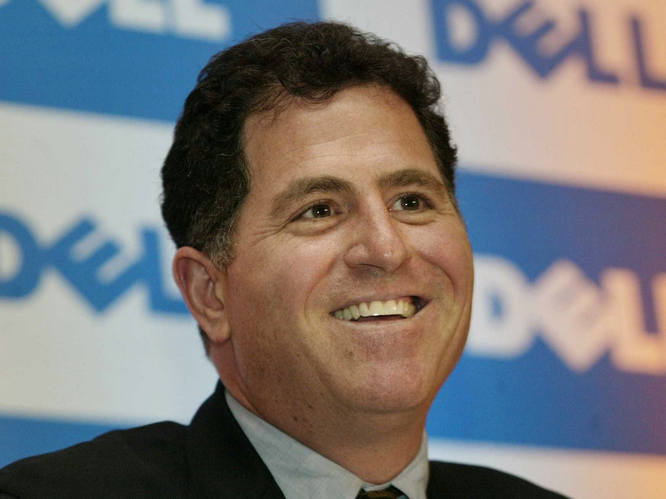
Data-Driven Triumph: The Secret Behind the Success
In 1985, while many tech firms focused on building distribution networks, Dell steadfastly adhered to direct sales, convinced that "eliminating intermediaries and engaging directly with customers enhances efficiency." This model enabled Dell to respond rapidly to market needs with lower costs and customized services. In just three years, annual revenue skyrocketed from 600,000to157 million, a growth rate exceeding 2500%, showcasing the might of direct sales.
Dell recognized technological advancement as the engine driving his company forward. Seizing the opportunity presented by IBM-compatible machines in 1983, Dell introduced a range of powerful, cost-effective products, winning over both corporate and individual users. His strategic foray into the Canadian market in 1987 marked the beginning of international expansion, highlighting his astute timing and global perspective.
Under Michael Dell’s leadership, Dell Technologies became a paragon of data-driven decision-making. Through meticulous supply chain management, it nearly achieved a "zero inventory," enhancing operational efficiency significantly. By 1992, annual revenues topped $2 billion, cementing Dell’s position as the world's largest direct-selling PC manufacturer, with its stock soaring post-IPO, epitomizing the "Dell Phenomenon." Dell emphasized reliance on data rather than conjecture for strategic guidance, a principle deeply ingrained in the company's culture.
Notwithstanding these achievements, challenges persisted. Amidst intense competition from the likes of IBM and Compaq, and amidst market volatility, Dell demonstrated unwavering leadership. He stressed innovation and adaptability, introducing laptops and expanding product lines, reinforcing Dell's market foothold. As he put it, "In a rapidly changing industry, the only constant is change itself; we must learn to find opportunities amidst instability."
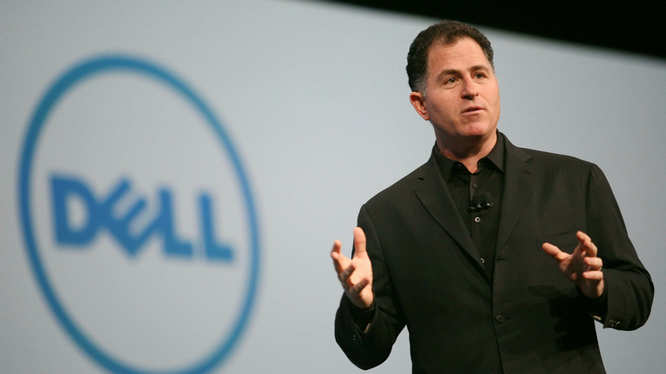
Embracing Challenges with the Courage to Innovate Continuously
As the 21st century dawned, the personal computer market neared saturation, sparking unprecedented competition. The rise of low-cost PCs and emerging brands like Lenovo began eating into Dell's market share. Concurrently, consumer preferences shifted subtly, favoring more personalized and mobile devices over standardized ones. Dell Inc., once renowned for its direct sales and customization, suddenly grappled with "innovation fatigue" and struggled to adapt to the evolving market.
Numbers don't deceive; in 2002, Dell's market share slipped for the first time, dipping from 14.2% in 2001 to 12.8%. Profit margins shrank due to price wars, with net income in Q4 of fiscal year 2005 dropping by 33% compared to the previous year. Michael Dell candidly acknowledged, "The market is changing, and so must we. Our commitment to our customers remains unwavering, but our methods of delivery must innovate."
Confronted with adversity, Michael Dell reclaimed the CEO role in 2007, determined to steer the company out of its downturn. He emphasized, "We must return to our roots of directly engaging with customers, understanding their needs, and delivering optimal solutions at the swiftest pace." Dell embarked on significant reforms, including boosting R&D investments, expanding into servers, storage, networking solutions, and actively pursuing cloud computing and data center markets.
Central to this transformation was the redefinition of Dell's direct sales model, extending beyond phone and online sales to include multi-channel retail partnerships. Collaborations with retailers like Walmart and Best Buy made Dell products more accessible. Additionally, Michael Dell underscored the importance of services, steering the company towards becoming a solutions provider rather than solely a hardware manufacturer.
Throughout this transition, Michael Dell's words inspired his team: "In the face of change, you either lead it or are led by it." This was not merely a warning but a call to action, uniting Dell in tackling challenges head-on.
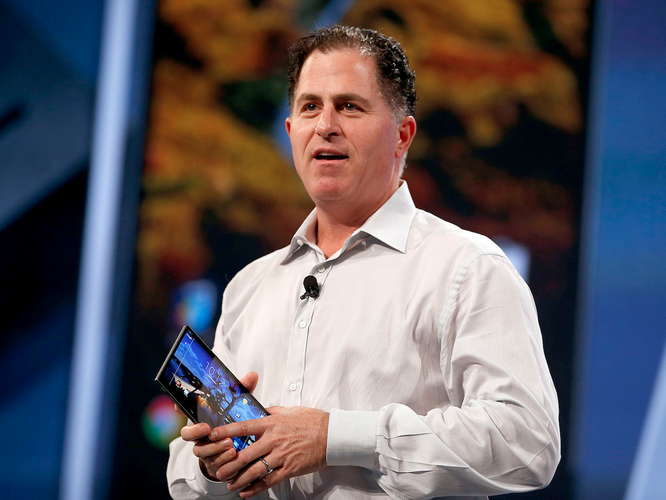
Social Responsibility: More Than Just a Business Leader
Michael Dell firmly believed, "Technology's power lies in its ability to solve humanity's most pressing issues, and it's our corporate responsibility to ensure this power is harnessed for good." Guided by this belief, Dell Technologies implemented initiatives worldwide to bridge the digital divide, promote educational equity, support disaster relief, and foster social sustainability.
Education was a key focus for Michael Dell. Through the "Dell Youth Learning Program," Dell Technologies partnered globally to provide technology education opportunities to children in underserved areas. Since 2014, the program has benefited over two million children, unlocking doors to knowledge and their futures. Dell remarked, "Education is the key to altering life trajectories, and it's our duty to ensure every child has access to it."
Addressing the widening digital divide, Dell Technologies under Michael Dell launched the "Connect for the Future" initiative, aimed at connecting remote regions to the digital realm through technology resources, training, and infrastructure. For instance, in India, Dell collaborated with the government to install solar-powered computer labs in remote schools, introducing thousands of students to computer science and igniting their passion for technology.
In times of natural disasters, Dell Technologies did not hesitate. Michael Dell stressed, "In crises, we must respond swiftly and leverage our technological expertise to bring tangible aid." From the 2004 Indian Ocean tsunami to the 2010 Haiti earthquake, Dell promptly responded with technology donations, technical support, and helped rebuild communication systems, restoring vital societal functions.
Recognizing the urgency of environmental protection, Michael Dell posited, "Sustainability is a necessary path for long-term corporate viability." Dell Technologies committed to carbon neutrality, implementing eco-friendly programs such as "Closed-Loop Recycling," which utilizes materials from recycled electronics to manufacture new products, reducing waste. By 2020, Dell had recycled over two billion pounds of e-waste, leading the industry.
Conclusion: Insights and Prospects
Michael Dell's story is a testament to dreams, innovation, and perseverance. He taught us that staying customer-centric, embracing change, and continuous innovation are the cornerstones of a business's enduring success. In today's fully digital era, Dell and his company, with an even more open stance, embrace the future, continuing to author their illustrious narrative. As Dell envisioned, "Future technology should enrich lives and bring the world closer together."
